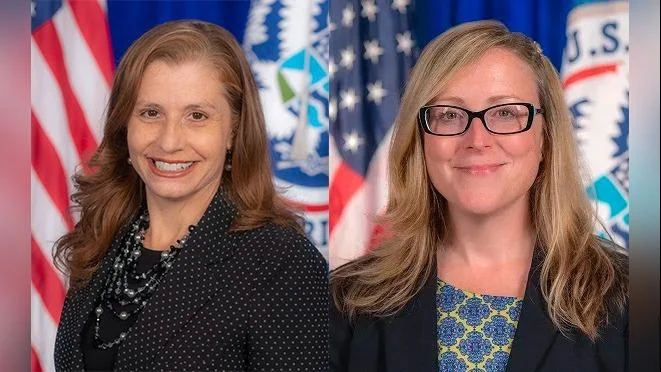Of these, 15 were approved (93.8%), while one were denied (6.2%).
The H-1B visa program allows U.S. employers to temporarily hire foreign workers in specialty occupations requiring specialized knowledge and at least a bachelor’s degree or equivalent. It is designed to address skill gaps in the U.S. workforce while ensuring wage standards to protect both U.S. and H-1B workers. Employers must certify that they will pay H-1B workers wages equal to or greater than those of similarly qualified U.S. employees or the prevailing local wage.
For comparison, the average approval rate for H-1B petitions across the United States in 2024 stood at 98%, slightly higher than the 97.3% recorded in 2023.
The Educational Services industry led the H-1B filings in during 2024, with nine petitions (56.3% of all submissions), and an approval rate of 88.9%. Meanwhile, the Public Administration industry was the second largest contributor, filing three petitions (18.8% of the total), with an approval rate of 100%.
Among employers that made petitions during 2024, Usvi Department of Education stood out with seven petitions and an approval rate of 100%, followed by University of the Virgin Islands with four petitions and an approval rate of 100%.
Compared to 2023, the number of H-1B petitions filed in during 2024 decreased by 30.4%.
The United States admits around 1 million legal immigrants annually, most of whom receive permanent residence (green cards) through family sponsorship or employment-based visas. In 2023, about 1.2 million immigrants were granted green cards, a return to pre-pandemic levels. Temporary visa programs, such as the H-1B for highly skilled workers and H-2A for seasonal agricultural workers, also play a critical role in filling workforce needs.
Public opinion on immigration varies, with 46% of Americans favoring maintaining current legal immigration levels, according to a 2024 Pew Research Center survey. Additionally, 42% believe that highly skilled workers, such as scientists, doctors, and programmers, should be prioritized for legal immigration, compared to 25% who prioritize workers filling labor shortages and 19% who emphasize family sponsorship. Despite this, family sponsorship remains the most common path to permanent residency, accounting for 63% of green cards issued in 2023.
The data in this article comes from the H-1B Employer Data Hub provided by the U.S. Citizenship and Immigration Services (USCIS). While USCIS strives for accuracy, manual data entry and errors on paper forms submitted by applicants or petitioners may result in discrepancies in employer names, tax IDs, locations, or other details.
| Rank | Industry | Total Petitions | % of All Submissions | % Approved | % Denied |
|---|---|---|---|---|---|
| 1 | Educational Services | 9 | 56.3% | 88.9% | 11.1% |
| 2 | Public Administration | 3 | 18.8% | 100% | 0% |
| 3 | Wholesale Trade | 1 | 6.3% | 100% | 0% |
| 3 | Other Services (except Public Administration) | 1 | 6.3% | 100% | 0% |
| 3 | Professional, Scientific, and Technical Services | 1 | 6.3% | 100% | 0% |
| Company Name | Industries | Total Petitions | % Approved | % Denied |
|---|---|---|---|---|
| Usvi Department of Education | Educational Services, Public Administration | 7 | 100% | 0% |
| University of the Virgin Islands | Educational Services | 4 | 100% | 0% |
| House of Rajah, Inc. | Wholesale Trade | 1 | 100% | 0% |
| Istaywireless | 1 | 100% | 0% | |
| North Caribbean Conference of Seve | Other Services (except Public Administration) | 1 | 100% | 0% |
| STS Peter and Paul School | Educational Services | 1 | 0% | 100% |
| Veloce It Group, LLC | Professional, Scientific, and Technical Services | 1 | 100% | 0% |

